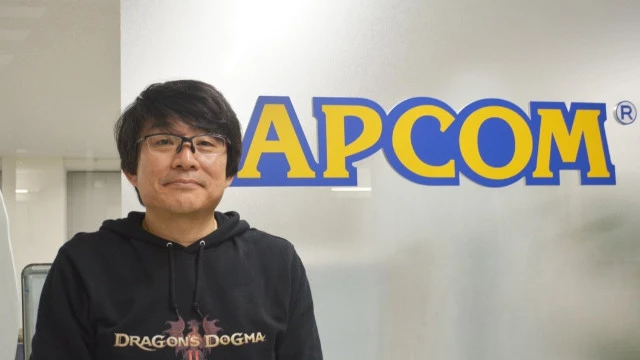In the dynamic and often cyclical world of video game development, stories of creators staying with a single company for decades are becoming increasingly rare. Even rarer is the tale of a celebrated director, having shaped multiple iconic franchises, choosing to leave the comfort of a legendary studio to chase an entirely new dream. This is precisely the narrative unfolding around Hideaki Itsuno, the visionary behind titles like Devil May Cry and Dragon`s Dogma, who recently concluded a remarkable three-decade tenure at Capcom.
The Weight of Legacy: Escaping the Infinite Sequel Loop
Itsuno’s departure isn`t merely a change of employer; it’s a profound statement on creative fulfillment in an industry often driven by iterative success. Imagine crafting masterpieces like Devil May Cry 5 and Dragon`s Dogma 2, pouring years of your life into perfecting a vision, only to look ahead and see a foreseeable future dominated by their inevitable successors. Itsuno articulated this sentiment with candid precision:
“For Capcom, creating Devil May Cry and Dragon`s Dogma sequels is the top priority… Before you [realize it], you are working on making Devil May Cry 6 or 7. It`s not like I don`t want to make them, I do. But it`s hard to balance the time it takes with the personal satisfaction of making them. And with Devil May Cry 5 and Dragon`s Dogma 2, I already did what I wanted to make.”
This isn`t a dismissal of his past creations, but rather a testament to the insatiable drive of a true artist. Having achieved his personal benchmarks with recent releases, the prospect of dedicating another four or five years to a direct sequel, no matter how beloved, must have felt less like an opportunity and more like a gilded cage. One might almost feel a touch of irony for a man whose immense success propelled him into the very predicament of potentially creating “too much” of a good thing.
The Lure of the New: Lightspeed`s Irresistible Proposition
The catalyst for Itsuno’s bold leap came in the form of an offer from Lightspeed, a move that promised the ultimate creative freedom: the chance to develop a completely new AAA intellectual property (IP). For a director of his caliber, this was an opportunity too significant to ignore, described by Itsuno himself as his “last chance” to challenge himself on such a grand scale.
In an industry often critiqued for its reliance on established franchises, Lightspeed’s commitment to an entirely new venture, spearheaded by a proven hit-maker, signals an ambitious and exciting strategic play. It’s a clear indication that innovation, even at the highest budget tiers, remains a powerful draw for both talent and potential audiences.
Assembling the Vanguard: A Dream Team for the Uncharted
True to form, Itsuno isn’t embarking on this ambitious journey alone. His move to Lightspeed’s second studio in Osaka, Japan, is accompanied by a migration of trusted former Capcom colleagues, a clear sign of deep professional bonds and shared creative philosophies. Among the notable additions are the celebrated artist Bengus, Devil May Cry writer Toshihiro Nakagawa, and character designer Daigo Ikeno.
This reassembly of a formidable development team underscores the critical role of synergy in game creation. Itsuno’s confidence in his long-time collaborators, particularly Nakagawa, whom he has worked with since Devil May Cry 2, speaks volumes:
“It`s good to be able to work with people whom I trust, like Mr. Nakagawa… If we mix my taste and his taste, I believe we can make a great game together.”
Such a cohesive unit, already familiar with each other`s strengths and creative nuances, is a significant asset when venturing into the unknown territory of a new IP, effectively hitting the ground running without the usual teething problems of a newly formed studio.
The Future Unwritten: Implications for the Industry
While the specifics of Itsuno`s new project remain shrouded in mystery, his departure from Capcom undoubtedly leaves a palpable void. The implications for the future of Devil May Cry and Dragon`s Dogma within Capcom are yet to be fully understood, though the news of a Devil May Cry anime series returning for a second season in 2026 suggests that the franchise`s wider universe continues to expand, even if its main game development leadership has shifted.
Itsuno`s decision is more than just a personal career move; it reflects a broader trend in the video game industry. As development cycles grow longer and the stakes higher, veteran creators are increasingly seeking environments where their creative drive for novelty can be fully expressed, rather than perpetually iterating on past successes. It`s a testament to the enduring human desire to innovate, to push boundaries, and to avoid the comfortable, yet creatively stifling, path of repetition.
The gaming world now watches with bated breath for Hideaki Itsuno`s next act. His bold transition from a storied legacy to an unwritten future at Lightspeed promises not just a new game, but potentially a fresh perspective on what high-budget game development can achieve when driven by an unyielding quest for original expression. What new demons will he conquer, and what dragons will he finally let sleep? Only time, and perhaps a compelling new IP, will tell.

